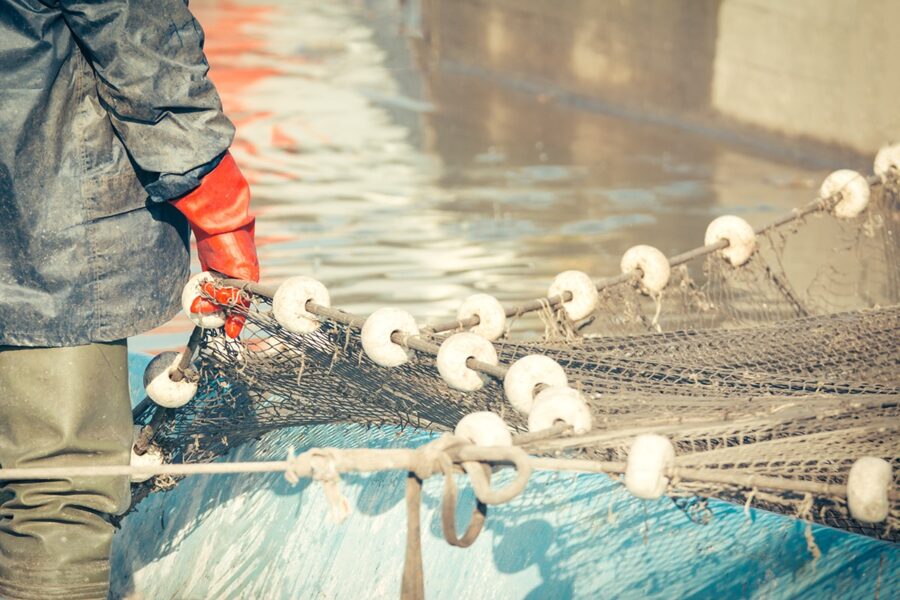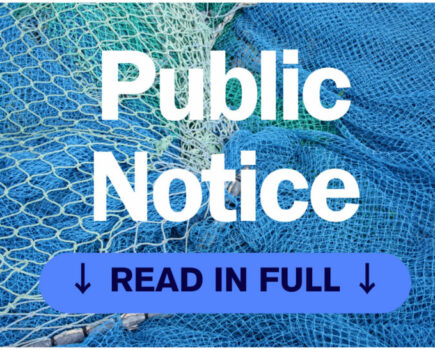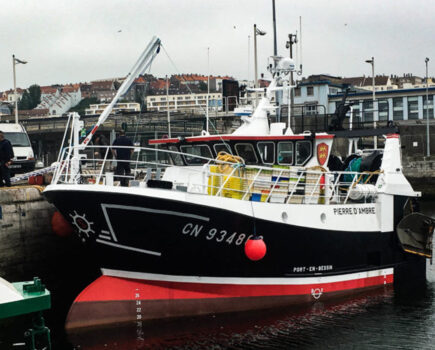As a crew member on a fishing boat, you will be well aware of the importance of observing the drugs and alcohol (D&A) policy for your vessel – not just for the obvious reason of maintaining all the crew’s safety whilst you are working, but also to protect anyone should they go overboard. The increased risk of hypothermia, and the general effects of drugs or alcohol, will significantly reduce the likelihood of survival if you end up in the water.
There is a legal alcohol limit for professional seafarers whilst on duty, which is a blood alcohol concentration of 50mg per 100ml. This is lower than the current drink driving limit of 80mg per 100ml in England, Wales and Northern Ireland.
It is estimated that individuals metabolise alcohol at a rate of between 0.015ml and 0.02ml per hour. Fifty milligrams is a blood alcohol concentration (BAC) of 0.05%. A pint of strong beer will result in a BAC of 0.458%, which is almost at the limit and would take three hours to reduce back to zero.
Despite there being a permitted legal limit, the usual and sensible position is to have a zero-tolerance policy on alcohol consumption onboard whilst on duty. However, the position becomes more complex where you are both working and living onboard. Thought must be given by all to crew safety generally, where there is potential for any crew members to be accessing the vessel whilst under the influence.
In a safety flyer produced by the MAIB in January 2020 following the tragic loss of the skipper onboard Artemis FR 809, it was confirmed that since 1992, alcohol had been a contributing factor in 9% of crew fatalities from UK-registered fishing vessels, and had contributed to 62% of fatalities on fishing vessels in port. This figure does not include fishermen who fell from the quayside prior to even reaching their vessel.
The MAIB said: “Boarding a fishing vessel from a quayside while under the influence of alcohol, and then negotiating the ladders and hatches onboard, poses considerable risk.”
In addition, alcohol was a factor in at least seven non-fatal incidents that led to the loss of the vessel during that period.
Managing risk
If any crew members are likely to be living onboard for any period of time, the risks to them returning to the vessel whilst inebriated should be assessed and reduced to the lowest acceptable level. Some vessel owners may take the view that this requires a zero-tolerance policy, whether the crew are on or off duty.
If alcohol consumption is allowed, the vessel’s D&A policy needs to include a clear definition of what constitutes ‘on duty’, and what are deemed acceptable alcohol limits whilst off duty. It is important for all crew members that the D&A policy is not just in existence but is also enforced.
Since 2018, all fishermen will have a Fishermen’s Work Agreement, which is signed by the owners or owner’s representative, and by the fisherman. Reference may be made to agreeing to the D&A policy in this document. Crew members may also be asked to sign a copy of the policy itself, to confirm that they have read and understood it. It is usual for the policy to be included in the Safety Management Folder.
Ideally there should be some discussion about the agreed culture onboard, to ensure owners, skippers and all crew members understand the importance of the relevant issues and what is acceptable conduct. If English is not a crew member’s first language, a translation may be required.
The D&A policy should set out the rules for crew members to abide by. It should state whether drugs and alcohol testing may be carried out, and set out the disciplinary procedure that will be followed if the policy is not complied with.
If recreational consumption of alcohol is permitted, steps need to be taken to ensure that this does not compromise the safety of crew who are required to return to the vessel. The Safety Folder should include an assessment for boarding and leaving the vessel.
Control measures to help safeguard crew members might include having a designated person to monitor and assist individuals boarding the vessel, ensuring crew do not attempt to board the vessel alone, putting lights on, making sure the deck is tidy and hatches are closed, and ensuring the crew have completed the necessary safety training courses.
MGN 591 (M+F) states that fishermen have their own part to play in minimising risks to themselves, and that this includes avoiding alcohol. It also states that risk assessments should consider health and safety when crew are returning to the vessel, possibly under the influence of alcohol or drugs and with a reduced ability to recognise risks.
There may also be local byelaws which address alcohol consumption onboard.
Zero tolerance
If a crew member is found to be in possession of drugs or under the influence of drugs or alcohol whilst on duty, it is usual for the D&A policy to require their immediate suspension from duty whilst an investigation is undertaken.
Should customs officers board the vessel and find drugs onboard, this could lead to the vessel being detained and the crew member, and potentially the owner, being prosecuted.
If an accident occurs onboard, and it is established that drugs or alcohol were a factor, this could lead to a civil claim against the vessel owner for failing to provide a safe work environment, and is also likely to result in any crew members involved losing their jobs.
So – for crew members and vessel owners alike – it is well worth taking another look at your vessel’s D&A policy, to ensure everyone is satisfied that it provides a clear, comprehensive policy that sets defined boundaries, and that it addresses all the safety issues if alcohol consumption is to be permitted whilst onboard but off duty.
This article is by Jo Pummery, a solicitor with the specialist marine law firm Bartons, is a qualified new-entrant fisher who has been to sea on several commercial fishing trips.
Bartons is an award-winning law firm that also specialises in fishing-related personal injury matters and in the sale and purchase of fishing vessels, as well as representing fishermen, owners and fish producers in MMO, IFCA, MCA or HSE interviews and investigations.
To discuss any fishing-related legal issues, please call Jo or the team on: 01752 675740. Further details can be found here.
This story was taken from the latest issue of Fishing News. For more up-to-date and in-depth reports on the UK and Irish commercial fishing sector, subscribe to Fishing News here or buy the latest single issue for just £3.30 here.








